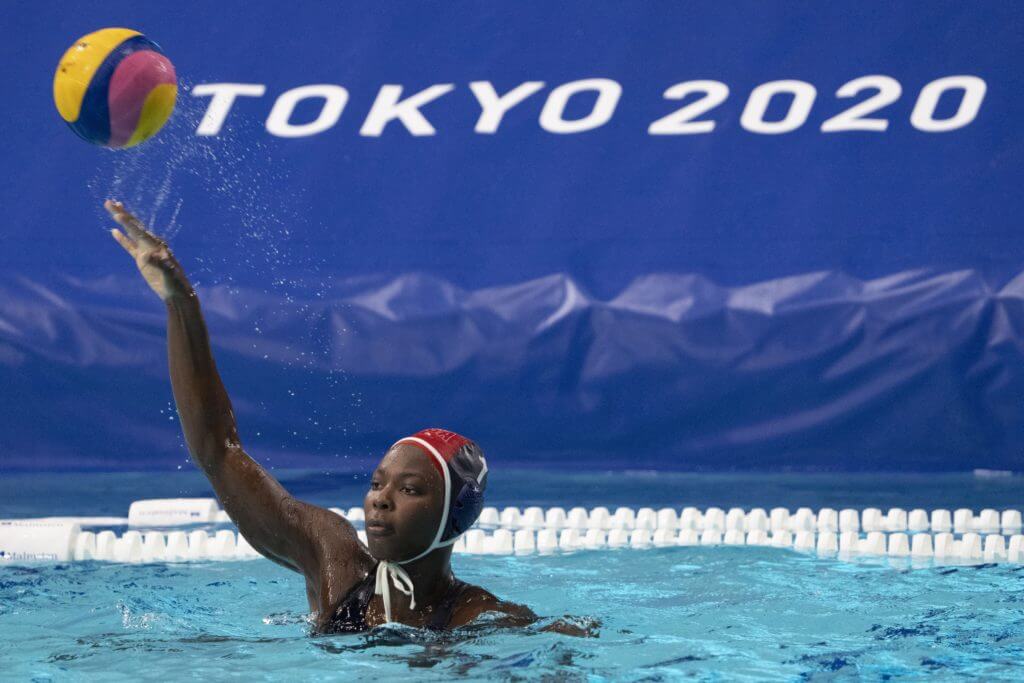After Second Gold, Ashleigh Johnson Expounds on ‘Mission’ of Promoting Inclusion

After Second Gold, Ashleigh Johnson Expounds on ‘Mission’ of Promoting Inclusion
Ashleigh Johnson’s journey to water polo stardom is well known by now. She’s won two gold medals as the goalie behind the U.S. women’s powerhouse team. A native of Florida and a graduate of Princeton, she’s a rare non-Californian in the upper echelon of American water polo, and she’s one of the few Black players in an overwhelmingly white sport.
Johnson has never run from that identity in her time as an elite player. And with her second gold medal and her place in the sport’s pantheon secure, she’s doubling down on her commitments to inclusion in the sport.
“I realized it’s a huge responsibility, but it’s a responsibility that I have the opportunity to welcome and that I could welcome by literally just being here,” Johnson said on an appearance on CBS This Morning last week. “I could just a be a mirror that a young Black girl or young Black boy could look to to see themselves in and I realized how powerful that was and how powerful that could be for someone who is coming into our sport and maybe has heard the stereotype that Black people don’t swim or looked and didn’t see anyone who looked like them and got discouraged. It’s part of my mission to change that.”
Ashleigh Johnson grew up not knowing about the history of exclusion of people of color from aquatic spaces. One of five children, she learned to swim in her family’s backyard pool and grew up in a community that was supportive. It wasn’t until she got to high school, college and levels beyond that she understood “other people’s perceptions” about what a swimmer typically looks like.
With those realizations came a conscious effort for Johnson to educate herself about the, “context of exclusion and inclusion in aquatic spaces for people of color.” A psychology and social psychology major, she has become an eloquent spokesperson for diversity and inclusion in sport. She’s also founded the Johnson Sisters Swim Clinic in the Miami/For Lauderdale area that puts the theory into practice.
In addition to all that she’s accomplishing in the pool for the U.S., she’s doing it with the weight of helping an entire historically excluded population try to break through. It’s work that she knows is heavy, but something she doesn’t shy away from.
“When I left in high school, going to the national team, going to college, I became more and more aware of other peoples’ perception of me and whether or not I should be there,” she said. “But I was already developing the protective mechanisms: The things that I told myself about myself, the stories that I had about myself that I knew didn’t confirm those stories. ‘You probably shouldn’t be swimming. What about your hair? What about all of these things?’
“I hope that me being here kind of breaks through those stories that other people tell young Black kids in aquatics about themselves so that they don’t even have to doubt, they don’t even question whether or not they belong here. Because we belong here, we’re strong, we excel in aquatics and there’s so much opportunity.”



